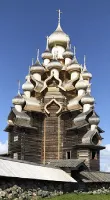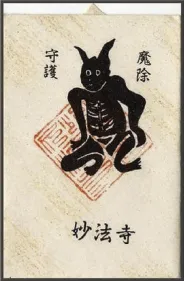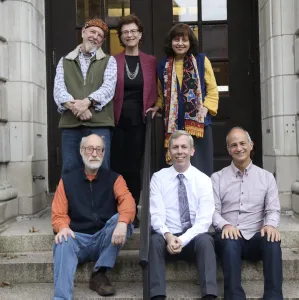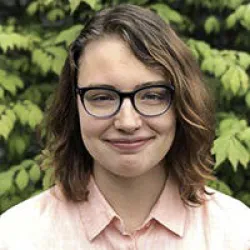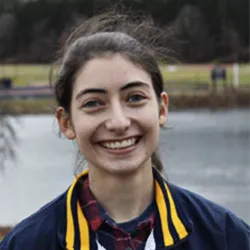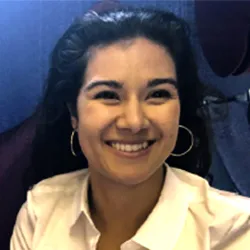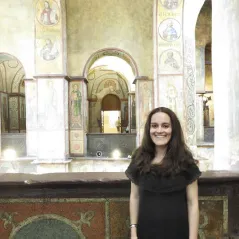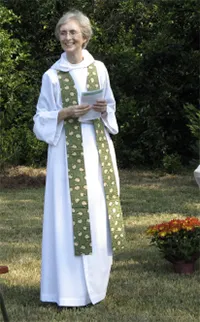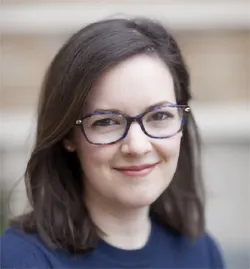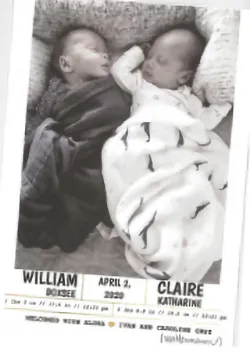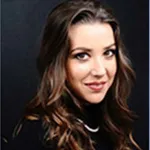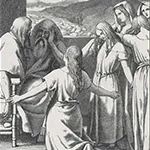Religion - Newsletter June 2020
June 2020
From the Chair
Dear Smith College Religion Department Alums and Current Religion Majors/Minors,
It has been a very unusual academic year at Smith. We have been greatly saddened by the cancellation of in person classes for the second half of the spring semester and we acutely feel the absence of the annual festivities surrounding Reunion and Graduation. This underscored our wish to reach out to all of our current and former Religion Department students and send along our second annual departmental newsletter. As always, we welcome you to be in touch with us. Once things return to some state of normalcy, if you find yourself on campus, be sure to drop in and visit. You can keep up with Religion Department goings-on through our Facebook as well as our Smith web pages. Almost all events are open to the public should you live nearby or be passing through town.
After sending our first newsletter in June 2019, we received many updates from alums. We’ve included many of these in this year’s newsletter. We look forward to receiving more updates from you that we would be happy to add to next year’s publication. Send news—and any queries—to administrative assistant Phoebe McKinnell at pmckinnell@smith.edu.
With cordial wishes from the department to each of you,
Joel Kaminsky, Chair
Faculty Updates
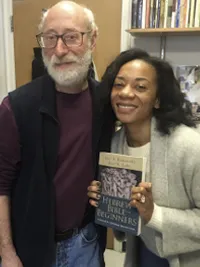
Department Chair
In 2019–20 I taught my first-year seminar “The Bible and American Public Square,” a high-level seminar, “Why Do the Innocent Suffer?” and a 200-level course on “Women in the Hebrew Bible.” Harvard Theological Review published an essay I co-authored titled “The Meaning and Telos of Israel’s Election: An Interfaith Response to N.T. Wright’s Reading of Paul,” which critiques the work of one the most widely-read scholars writing on Paul today.
Photo: Professor Kaminsky was very happy to have a visit from Ryan Shepard (Hughley) ’09 at his Wright Hall office in February.
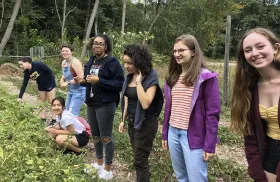
This year I taught some of my favorite courses! In The Jewish Tradition: Food and Foodways, we supplemented in-class learning with the fun activities of cooking workshops and visiting Abundance Farm (at Congregation Bnai Israel). Students in Women and Gender in Jewish History did fascinating archival research in the Sophia Smith Collection. In spring, both classes — Philosophers and Mystics, and Ritual: Performance and Paradoxes (co-taught with David Howlett) — transitioned well to Zoom teaching because we had already formed close communities and because the subjects took on new urgency; I am grateful for the deep bonds forged by students in these classes. Also delighted to serve as Honors Director during a banner year in which four students wrote Honors theses!
Photo: Students in Professor Dubin’s fall 2019 The Jewish Tradition: Food and Foodways class, at Abundance farm in Northampton. They also visited the kitchen, with delicious results
In 2019–2020 I had my sabbatical year, which featured a lot of research travels and much quality time for writing. I published a book on the religious merits of Jerusalem in Islam (it came out in a simultaneous edition by two publishers in Jerusalem and Beirut), and I also finished another book on an important Muslim figure from the Crusader period called Ibn Asakir, highlighting his contribution to the revival of Sunnism in the Middle East and the way he and his works have been employed by modern Syrian nationalists in the creation of a national identity and historical memory for Syria (a rather secular one at the beginning of the 20th century, and a religious one at the end of it). I wrote as well many articles for general audiences, such as the one criticizing modern scholarship on the Crusades which appeared in BBC History magazine, and several other pieces on different topics, which were published in online and print journals in Europe and the Middle East (in French, Arabic and English).
Last summer, I was fortunate to accompany a group of Smith alumnae on a Smith College Travel Program, The Waterways of Russia, during which I offered lectures on topics related to Russian sacred art. The trip included visits to ancient churches and monasteries along the shores of Russia’s northern lakes and the Volga River, several of which are included in UNESCO’s list of World Heritage Sites. I spent a month prior to that trip conducting research in archives in St. Petersburg and Moscow on the topic of religion and atheism under early Bolshevik rule. I also lectured to American students pursing intensive Russian-language study at the Higher School of Economics in St. Petersburg, among whom was one of our very own Smith Religion majors. On my return from Russia, I completed an essay on religion in revolutionary Russia for The Oxford Handbook on Russian Religious Thought. In the fall, I headed to Yale University’s Institute of Sacred Music for a year-long Fellowship, where I pursued my current book project on liturgy, narrative, collective trauma, and post-Gulag witnessing in Russia. Yale Institute of Sacred Music boasts many of our own Smith Religion majors among their graduates. In fact, just weeks before the Covid-19 outbreak, it was a treat to hear a lecture by Emily Floyd—both a Smith Religion major (’09) and Yale ISM graduate (’12)—who now teaches at University College London. While at Yale, I taught a course on the “Politics and Culture of Russian Sacred Art.”
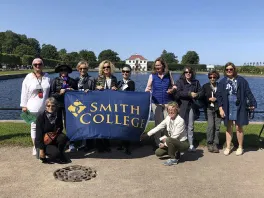
Needless to say, my pursuits during the spring were somewhat derailed as COVID-19 set in, and libraries and academic buildings closed. Along with my academic colleagues across the country, I made that rapid transition from lively, in-person weekly seminars to the Zoom classroom. The most rewarding work of this past year, however, has been with Smith students. Even though I was on sabbatical leave, I remained in touch with my advisees. I was particularly pleased to oversee two magnificent Honors Theses, and mentor one of our graduating seniors through the process of applying for a Fulbright Fellowship (which she was awarded). In addition to completing two articles based on my current project, this summer I look forward to preparing a new course on “Religion, Beliefs and Human Rights,” which is scheduled to be offered next spring semester (2021).
Photos: Top left, a wooden church in Russian orthodox tradition; right, Professor Shevzov’s trip with Smith alumnae in summer 2019—The Waterways of Russia
Hello all. I hope that you are doing well in this difficult time. I am not teaching this semester, so in a sense I “dodged a bullet” and don’t have to conduct classes via Zoom and learn other new technology. On the other hand, as Professor Dubin said the other day in a Zoom gathering of Religion faculty and students, her “virtual class-time” with students is a treasured time of her day, as it is during a normal semester as well. So yes, I miss my students! Last year at this time I was in Kyoto, preparing for a Global FLEX study program, Buddhist Culture and Thought of Japan, which was to have been offered for the first time this May in Kyoto. But of course the program has been canceled. My wife Maki (just retired in December from the East Asian Languages and Literatures Department at Smith) and I have a lot to do with various international programs and international students, and this has been very hard for them. It is hard to grasp the upheaval in a student’s life.
Of course, many of you reading this are graduates from years ago, and so you too are sorting through issues other than online classes—childcare, loss of income, friends and relatives with underlying conditions—maybe you too are vulnerable? My wife and I keep wondering if “old age” means more like 80’s than our own 60’s, but our children assure us that we are indeed old, if not ancient.
At the risk of sounding callous, this moment presents many opportunities for students of religion, whether volunteering somehow (remotely teaching remote technology to various “inmates” in hospitals, nursing homes, or jails who really need social interaction but often don’t have access), watching the myriad responses of religious leaders (and political leaders responding to religious leaders) and the practice of religiously-minded folk in general. I am collecting info on the many Buddhist and Japanese responses, and many of the professional list-serve groups that I belong to (Buddhist Studies, classical Japanese texts, etc.) have become filled with history, manuscripts, and other tales of epidemic/pandemic disease and religion. Lately I have been tracking “Tsuno Daishi,” the “Great Horned Master,” the incarnation of a 10th-century Buddhist monk who fights deities that transmit epidemics. His amulets have long protected our home, and. . . so far so good! I hope that your protectors are also doing a good job!
Photo: Tsuno Daishi, a protector demon that wards off disease—very popular in Japan (especially these days); this amulet is from Myoho-ji Temple and hangs in Professor Hubbard's home
The year started out in an unremarkable but happy way – I moved into a new office in Seelye Hall and taught my favorite bread-and-butter courses (Introduction to World Religions and Philosophy of Religion). In the first week of the spring semester, I gave the 62nd Katherine Asher Engel Lecture, Unfinished: William James and the Making of America’s Religious Classic, and I began teaching The Catholic Philosophical Tradition and the Afterlife course (in a delightful collaboration with our new colleague David Howlett). Then the coronavirus struck, turning everything upside down. Smith College has responded to this crisis with wonderful compassion, wisdom, and efficiency. With the guidance of President McCartney, Provost Michael Thurston, and the whole COVID-19 team, we have entered a strange new world, buoyed up by our virtual connections to students, friends, colleagues, and family. Learning still goes on and in many ways is deepened by this crisis.
Visiting Mellon Professor
As part of a three-year Mellon grant, I developed a new course with Andy Rotman, “Spiritual But Not Religious,” and team-taught courses with Carol Zaleski and Lois Dubin. In my first-year seminar, “American Gods,” students conducted ethnographic research and constructed a virtual walking tour of eight of Northampton’s religious communities. Students are writing and producing a seven-part podcast in my “Mormonisms” course. Their project, titled “Women’s Rites,” tells the story of women’s ordination in a progressive Mormon denomination. Finally, I published a book review in the Journal of the American Academy of Religion and finished revisions for an article that will appear in Church History in September.
In Fall 2019, I did a lot of teaching and writing, and I loved it. I taught Approaches to the Study of Religion, courses on South Asian visual cultures and masculinities, and a special studies in Sanskrit. I also finished an article about the moral economy of the bazaars of Banaras, India, and then spent winter break there doing more research. In Spring 2020, I’ve been teaching Religions of Ancient India, a seminar on violence, nonviolence, and revolution, and spending lots of time helping students, colleagues, friends, and family cope with the pandemic. It feels good to be of service.
Upcoming Religion Courses Fall 2020
Upcoming Religion Courses Spring 2021
Carol Zaleski Delivers Engel Lecture
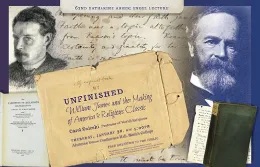
In January, Professor Carol Zaleski presented Smith’s 62nd Katharine Asher Engel lecture, “Unfinished: William James and the Making of America’s Religious Classic.” The Engel lecture is given annually to a member of the Smith faculty who has made an outstanding contribution to knowledge in his or her field (we couldn't agree more!).
For William James, the “right to believe” was a life-or-death matter: he attributed his recovery from suicidal depression to a decision to permit himself to believe in free will. In his Gifford Lectures, published in 1902 as The Varieties of Religious Experience, he extended this privilege to religion, providing a naturalistic but sympathetic interpretation of conversion, mystical states of consciousness, saintly affections and prayer. Though it lacked the fully worked out philosophical conclusion James had hoped to provide, the Varieties became an instant classic, prized by figures as diverse as Ludwig Wittgenstein, Muhammad Iqbal, D. T. Suzuki and Bill Wilson (co-founder of AA). James’s admirers praise him for his robust defense of religious experience and its life-changing power; his detractors criticize him for his emphasis on private, eccentric, and extreme mental states. But the Varieties is best understood in the way James understood himself, his philosophical system, and reality as a whole: as an unfinished project. In recounting the making of the Varieties, Professor Zaleski’s talk suggested ways in which James’s oversights can be corrected, his exuberant pluralism more fully realized, and his religious classic rediscovered for today.
Graduates & Awards
Religion Department Awards
James Gardner Buttrick Prize
For the best essay written by a Smith undergraduate on a subject in the field of religious studies
Halley Haruta ’20 “Simone Weil’s Theology of Mathematics”
Henry Lewis Foote Memorial Prize
For the best essay written by a Smith undergraduate on a subject in the field of biblical studies
Naomi Brill ’22 “Jesus, James, and Job: Christian Perspectives on Innocent Suffering”
Jochanan H.A. Wijnhoven Prize
For the best essay written by a Smith undergraduate on a subject in Jewish religious thought
Liel Green ’20 “Anticipatory Illuminations: The Performance of the Jewish Sabbath as Queer Futurity”
Class of 2020
Senior Honors Theses 2020
Avery Masters
Halley Haruta
Kimraj Jordan
Caroline Dunbar
Alumnae Updates
Event Sampling
A sampling of campus events sponsored or co-sponsored by the department in 2019–20:
Jewishness, Historiography and the Victorian Novel
Dr. Megan Dent ’11, D. Phil. | Oxford University
September 12
Portrayals of Judaism and Jewishness feature prominently in many important 19th centrury novels, from Eliot’s Daniel Deronda to Disraeli’s Coningsby. A study of representations of Jewish people in fiction provides insights into the politics of Victorian identity and ethnicity.
Buddhism and Extremism
A Buddhist Perspective on the Climate Emergency
Karin Meyers Visiting Assistant Professor | Smith College
September 19
When confronted with the truth of the climate emergency, Buddhists offer a range of responses, some inclining towards activism and others towards passivity. This lecture examined these responses in light of a variety of Buddhist philosophical perspectives and the historical development of Buddhism in Asia and the West. Meyrs argued that the climate emergency ought to be a central Buddhist (and human) concern and that calls for a deepening and evolution of Buddhist practice.
Lucy S. Dawidowicz, the New York Intellectuals and the Emergence of Holocaust Consciousness in the United States
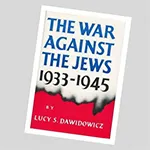
Nancy Sinkoff Professor of Jewish Studies and History | Rutgers University New Brunswick
November 4
This lecture explored the contribution of Lucy S. Dawidowicz (1915–90), American Jewish public intellectual and historian, to the emergence of post-war Holocaust consciousness. Dawidowicz’s 1975 book The War Against the Jews: 1933–1945 (1975) was a path-breaking work in the field now known as Holocaust Studies. Witness to the vital Jewish world of pre-war Poland and to its destruction, Dawidowicz devoted her life to raising awareness of East European Jewish civilization in America.
From Eve to Zelophehad’s Daughters
Biblical Stories of Courage and Agency
Esther Menn | Lutheran School of Theology at Chicago
March 2
Women appear prominently in the Hebrew Bible, although rarely in official leadership roles. Women’s stories provide a different perspective on biblical history, in which the impact of events and social structures are viewed from below. These counter-narratives reveal the wisdom, tenacity, and worth of women and others without formal power in a patriarchal culture. They also highlight the central values of preserving life and human thriving. The women of the Bible still speak to us today, when many feel powerless within challenging social and political circumstances and are seeking alternative models of resistance and flourishing.
The Story of Jane
How an Obscure Black Woman Changes American History
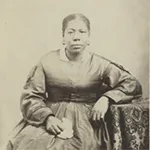
Quincy Newell | Hamilton College
March 3
How does our understanding of American history change when we consider the life of Jane Manning James, a Connecticut-born African American who joined the fledgling Mormon movement in the early 1840s? Quincy D. Newell, author of the first full-length biography of James, discussed how James’s life adds depth and nuance to our histories of African Americans, American religion, American women and the American West.

